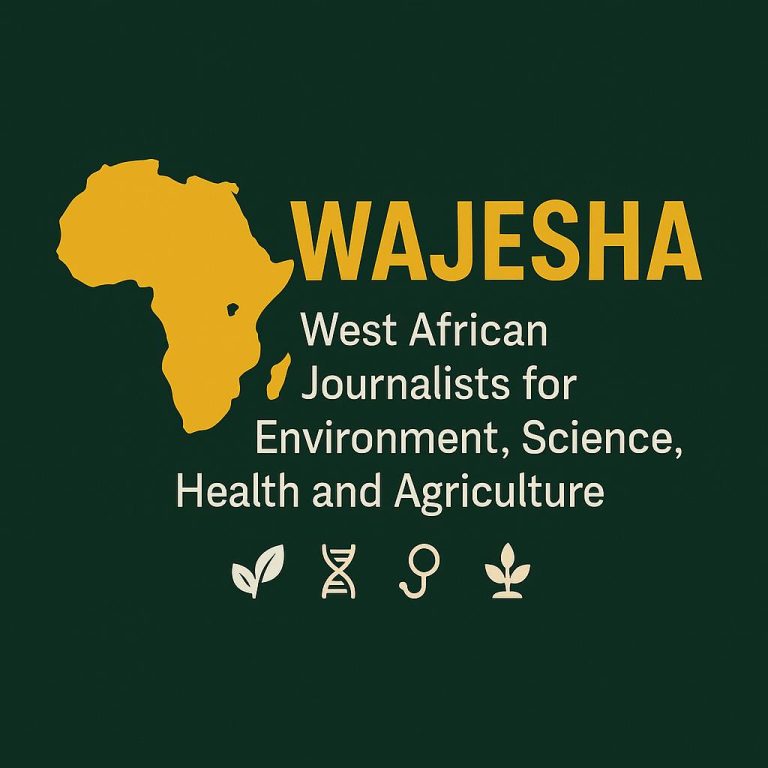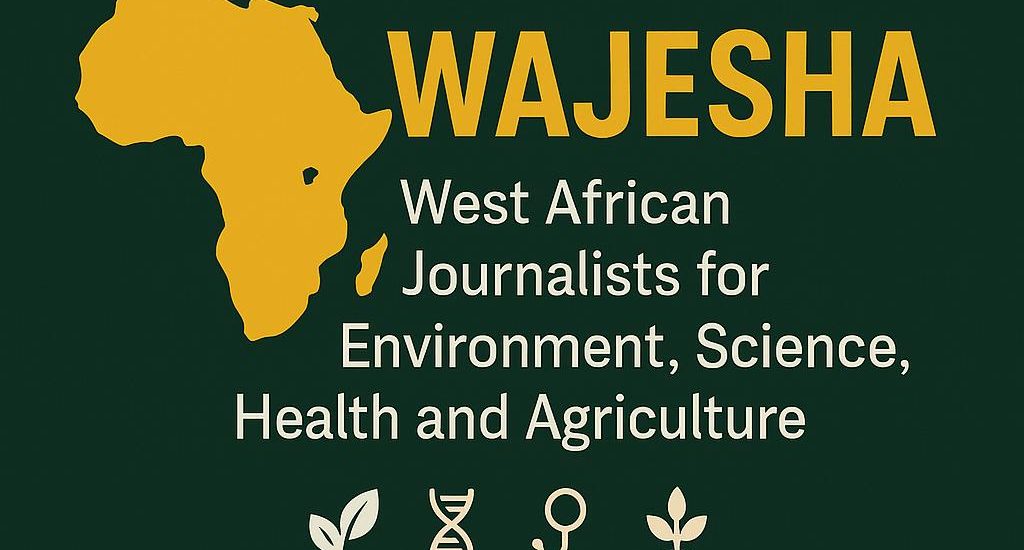West African Journalists for Environment, Science, Health, and Agriculture (WAJESHA)
A Non-Profit Journalism Project of CCCFS

Who We Are
WAJESHA is a regional network of passionate, professional, and socially committed journalists dedicated to advancing high-quality, high-impact reporting across the four pillars of Environment, Science, Health, and Agriculture (ESHA) in West Africa.
Founded as a non-profit journalism project by the Centre for Climate Change & Food Security (CCCFS) on January 1, 2025, and launched on August 15, 2025, WAJESHA bridges the critical gap between scientific research and public understanding, ensuring that people, policymakers, and communities are informed and empowered to act. The project equips journalists with cutting-edge skills, modern tools, access to credible data, and collaborative networks to produce stories that are accurate, impactful, and solutions-driven.
Where We Work
What We Do
1. Capacity Building
Organizing workshops, fellowships, and mentorship programs for journalists.
2. Cross-Border Collaboration
Supporting investigative journalism projects covering regional ESHA challenges.
3. Data Journalism Labs
Helping members use data to create impactful, evidence-based stories.
4. Policy Engagement
Driving media conversations that influence public policy and sustainable practices.
5. Public Awareness
Simplifying complex science, health, and agriculture issues for mass audiences.
6. Partnership Projects
Working with research institutions, development agencies, and civil society to amplify ESHA coverage.
Core Focus Areas
1. Environmental Journalism & Climate Action Reporting
2. Science, Technology & Innovation Communication
3. Health Advocacy and Public Health Reporting
4. Food Security, Agriculture, and Rural Development
Why WAJESHA Matters
In West Africa, misinformation, fragmented reporting, and lack of context often undermine public understanding. WAJESHA addresses this by:
1. Ensuring credible, accurate information on ESHA reaches the public.
2. Influencing policies and sustainable practices through informed journalism.
3. Strengthening regional collaboration to tackle challenges like climate change, pandemics, and food insecurity.
4. Amplifying the voices of vulnerable communities affected by environmental degradation, poor health systems, and agricultural instability.

Our Partners
1. Research institutions and universities across West Africa.
2. Civil society organizations working on ESHA issues.
3. Development agencies supporting media freedom and sustainable development.
Our Members
Membership is open to practicing journalists, editors, science communicators, researchers, content creators, and freelance reporters covering ESHA topics in West Africa.
Vision
Mission


